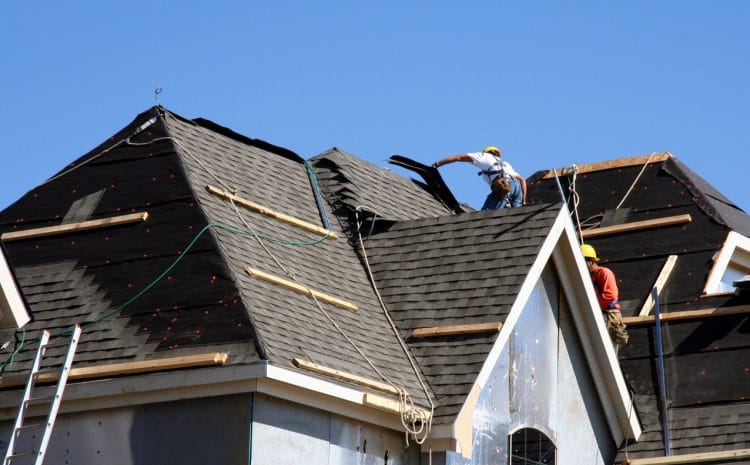Top 10 Reasons Your Property Damage Insurance Claim Was Denied

Dealing with property damage insurance claim can be stressful, and the last thing you want is for your insurance claim to be denied. Unfortunately, denied claims happen more often than many homeowners expect. Understanding why your property damage insurance claim might have been denied is key to avoiding common pitfalls and improving your chances of a successful appeal. If you’re already facing a denial, seeking help from a denied insurance claim lawyer could be your best next step.
In this article,
we’ll explore the top 10 reasons your property damage insurance claim was denied and how you can avoid these issues.
1. Insufficient Documentation
One of the most common reasons for a denied claim is failing to provide sufficient documentation. Insurance companies need proof to assess the damage, including photos, videos, and detailed reports. Without proper evidence, your claim may be dismissed or undervalued.
Tip: Always document the damage thoroughly. If possible, keep records of property conditions before and after the incident. This will help support your claim.
2. Policy Exclusions
Insurance policies often contain exclusions—specific scenarios that aren’t covered. For example, most standard homeowners insurance policies don’t cover flood damage. If the damage falls under a policy exclusion, the insurance company will deny the claim.
Tip: Review your policy carefully to understand what’s covered. If you’re unsure, consult a property damage insurance claim lawyer to clarify any complex clauses.
3. Missed Deadlines
Filing deadlines are crucial when submitting an insurance claim. If you fail to file within the specified timeframe, your claim could be automatically denied, regardless of its validity.
Tip: As soon as property damage occurs, notify your insurance company and start the claims process immediately. Keep track of deadlines to avoid unnecessary denials.
4. Lack of Maintenance
Insurance policies are designed to cover sudden and accidental damage—not damage caused by neglect or poor maintenance. If the insurance company determines that the damage resulted from a lack of routine upkeep, your claim could be denied.
Tip: Regularly inspect and maintain your property to prevent issues like roof leaks, mold, or structural deterioration. This will help avoid claim denials related to lack of maintenance.
5. Misrepresentation of Facts
Providing inaccurate or misleading information during the claims process is a major red flag. Even unintentional misstatements can lead to a homeowners insurance claim denied. Insurance companies are meticulous in verifying claims, and any discrepancies could result in rejection.
Tip: Be honest and accurate when filing your claim. If you need help navigating complex forms or documentation, consider hiring a professional like a denied insurance claim lawyer to guide you through the process.
6. Failure to Mitigate Further Damage
Insurance companies expect homeowners to take reasonable steps to prevent further damage to their property after an incident. For example, if your roof is damaged in a storm, you should temporarily patch it to avoid additional water damage. Failing to do so could result in a denied claim.
Tip: Take immediate action to mitigate further damage after an incident. Document these efforts and keep receipts for any temporary repairs.
7. The Damage Isn’t Severe Enough
Insurance companies may deny claims if they believe the damage doesn’t meet the severity threshold required for a payout. If the cost of repairs is lower than your deductible, the claim could be rejected.
Tip: Before filing, estimate the damage and compare it to your deductible. If it’s close, it might not be worth filing the claim, as doing so could increase your premiums without a payout.
8. Incorrect Filing of the Claim
Sometimes, even a minor mistake on the claim form can lead to a denial. Incorrect information, missing details, or submitting the wrong documentation are all common errors that can cause a claim to be rejected.
Tip: Double-check all the paperwork before submitting your claim. If you’re unsure about any part of the process, it’s worth consulting with a property damage claim lawyer to ensure everything is in order.
9. Disputed Cause of Damage
In some cases, the insurance company might dispute the cause of the damage. For example, if you claim storm damage but the insurer believes the damage was due to wear and tear, your claim could be denied.
Tip: To avoid disputes, get a professional assessment of the damage before filing your property damage insurance claim. This can help provide evidence that the damage was caused by a covered event.
10. Bad Faith Denial
Unfortunately, not all insurance companies act in good faith. In some cases, insurers may wrongfully deny claims, hoping the policyholder won’t appeal. This is known as a “bad faith denial.”
Tip: If you believe your claim was unfairly denied, consider an insurance claim appeal process. You can appeal denied property damage insurance claim decisions by providing additional documentation or getting legal help. In cases of bad faith denial, 411 Claims Help can connect you with professionals who specialize in handling these types of issues.
How to Appeal a Denied Insurance Claim
If your homeowners property damage insurance claim was denied, don’t lose hope. You have the right to appeal the decision. Here’s a basic overview of the insurance claim appeal process:
- Review the Denial Letter: Your insurance company should provide a detailed explanation of why your claim was denied. Carefully review this letter to understand the specific reasons for denial.
- Gather Additional Evidence: If your claim was denied due to insufficient evidence, gather more documentation to support your appeal. This could include additional photos, expert assessments, or repair estimates.
- File an Appeal: Contact your insurance company and formally file an appeal. Be sure to provide all the necessary documentation and adhere to any deadlines.
- Hire a Lawyer: If your appeal is still rejected or if you suspect bad faith practices, consult with a denied insurance claim lawyer. They can help you navigate the appeal process and, if necessary, file a lawsuit against the insurance company.
Conclusion
Filing an insurance claim can be a complex process, and there are many reasons why a claim might be denied. However, by understanding the common pitfalls and taking the right steps to avoid them, you can increase the chances of a successful claim.
If your property damage insurance claim has been denied, don’t hesitate to reach out for professional assistance. Hire a Public Adjuster to help you navigate the claims process and ensure you’re getting the compensation you deserve. You can also find additional resources at 411 Claims Help, where experienced professionals are available to support you through every step of your property damage insurance claim.
Remember, knowing your rights and acting swiftly can make all the difference in turning a denied claim into a successful one.



